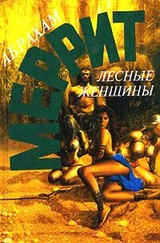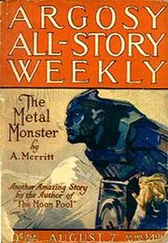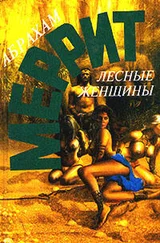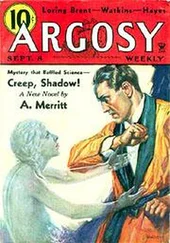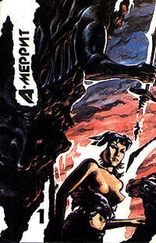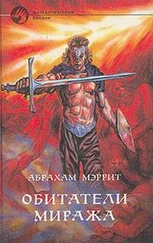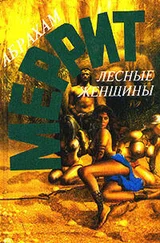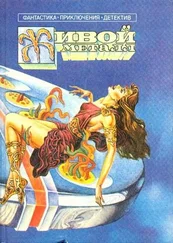Абрахам Меррит - The Ship of Ishtar
Здесь есть возможность читать онлайн «Абрахам Меррит - The Ship of Ishtar» весь текст электронной книги совершенно бесплатно (целиком полную версию без сокращений). В некоторых случаях можно слушать аудио, скачать через торрент в формате fb2 и присутствует краткое содержание. Год выпуска: 2014, Издательство: epubBooks Classics, Жанр: Фэнтези, на английском языке. Описание произведения, (предисловие) а так же отзывы посетителей доступны на портале библиотеки ЛибКат.
- Название:The Ship of Ishtar
- Автор:
- Издательство:epubBooks Classics
- Жанр:
- Год:2014
- ISBN:нет данных
- Рейтинг книги:5 / 5. Голосов: 1
-
Избранное:Добавить в избранное
- Отзывы:
-
Ваша оценка:
- 100
- 1
- 2
- 3
- 4
- 5
The Ship of Ishtar: краткое содержание, описание и аннотация
Предлагаем к чтению аннотацию, описание, краткое содержание или предисловие (зависит от того, что написал сам автор книги «The Ship of Ishtar»). Если вы не нашли необходимую информацию о книге — напишите в комментариях, мы постараемся отыскать её.
The Ship of Ishtar — читать онлайн бесплатно полную книгу (весь текст) целиком
Ниже представлен текст книги, разбитый по страницам. Система сохранения места последней прочитанной страницы, позволяет с удобством читать онлайн бесплатно книгу «The Ship of Ishtar», без необходимости каждый раз заново искать на чём Вы остановились. Поставьте закладку, и сможете в любой момент перейти на страницу, на которой закончили чтение.
Интервал:
Закладка:
And now up and down, thrusting, ripping, slashing, danced Zubran's blade until its red sweat dyed his arm from hand to shoulder. In front of him grew a barricade of the dead.
Two by two only could they set foot upon the Bower's threshold—and two by two steadily they fell, blocking that threshold from side to side with a steadily rising wall of bodies. At last their swords glinted toward him no more; he heard the forward ranks cry out behind the barrier; leaping upon the slain he saw them turn and press back those who, marching upward, tried to sweep them on.
The Persian flexed the weary muscles of his arm; laughed as he heard the voice of Klaneth:
"There is but one man there! Kill him—and bring me the woman. Ten times her weight in gold for him who takes her!"
They mustered; they rushed up the stairway like a racing snake; they clambered over the wall of the dead. The red drip of Zubran's scimitar became a running rivulet—
An agony bit deep into his side, above the groin. A fallen swordsman had raised himself, thrust up his blade.
The Persian knew the wound was mortal!
He cut down at the grinning face, leaped again upon the dead, cleared the doorway with storm of strokes. He thrust his shoulder against the wall of bodies, threw them out. They spewed upon the steps, rolled down. They fell upon the climbing men, tripped them; pitched them off the railless edge of the stairway; sent them hurtling down through the mists, clutching at the air.
For twenty steps the stairway was clear!
An arrow whistled.
It cut through the twisted mantle around Zubran's neck; pierced him where helm and gorget met. He drank the salt blood pouring down his throat.
The Persian staggered to the silken pile on which lay Narada. He caught a leg of the brazier and overturned its coals upon the oil–soaked cloths.
Thin flames arose. The blast from the opened window caught them and turned them into roaring fans of fire.
Through them Zubran crept; stretched himself out beside the body of the dancer; twisted, and gathered her in his arms.
"A clean death," he whispered. "At the last…like all men…I return to the…gods of my fathers. A clean death! Take me—O Fire Immortal!"
A flame shot up beside him. It hovered, then bent.
The tip of the flame broadened.
It became a cup of fire filled with wine of flames!
Into that cup the Persian dipped his lips; he drank of its wine of fire; he breathed its incense.
His head fell back, unmarred; the dead face smiling. His head dropped upon Narada's breasts.
The flames made a canopy over them; the flames tented them.
27
How They Fared Back to the Ship
Now the four for whose freedom the Persian had died were far away. Safely they had passed the terraces; the dead sentries lay as they had fallen. But as they went the four heard a humming begin inside the ziggurat like that of a disturbed and colossal hive, heard the great drum resume its throbbing and sped faster under cover of the wall of stone to where the grapnel of Gigi hung. One by one they slipped down its rope and into the sheltering trees. The tempest scourged them—but it shielded them. None was on the wide street to challenge their going. Emakhtila lay within its painted houses hiding from the storm.
When the cup of flame had dipped to the Persian's lip they were well along the other way upon which opened the hidden path back to the ship.
When the soldiers had at last mustered courage to swarm the stairs once more, and with the black priest on their heels had poured within the silent Bower, the four were far beyond the clustered houses, stumbling through the deep mud of the farmside, the Viking at lead, Kenton guarding the rear—and watching, ever watching, for Zubran.
And back in that chamber where Zubran's ashes lay mixed with the dancer's, the black priest stood, mazed and with something of fear touching his wicked heart—until his wandering gaze caught gleam of the butterflies in Narada's veils that had slipped from her when the Persian had lifted her, caught, too, the trail of blood that led to the open window. Staring out that window the black priest saw in the livid dusk the crumpled body of Bel's priest—dead, white face raised to his own, forty feet below.
The priest! Then whose were the charred bodies on the pyre? Who had been the man fighting in golden helm and buckler, face hidden in the god's mantle? So swift had been the sword play, so much had that man been hidden by the soldiers, so much by cover of the wall, that Klaneth watching from below had caught few glimpses of him; had taken it for granted that he was Bel's priest.
Back ran the black priest; kicked savagely at the ashes of the pyre and what still lay among them.
Something clanged upon the floor—a broken scimitar! He knew that hilt—Zubran's, the Persian!
Something glittered at his feet—a buckle, gems undulled by their bath of fire! He knew that, too—the buckle of Narada's girdle!
Why then—these blackened forms were the Persian—the dancer!
Sharane had been freed!
The black priest stood rigid, face so dreadful that the soldiers shrank back from him, threw themselves against the walls, out of his way.
Then Klaneth plunged howling out of Bel's Bower, down the angled stairway, through the secret shrines, on and on until he reached that cell where he had left Kenton with the six archers. He threw open the door, saw archers and officer deep in sleep and Kenton—gone!
And shrieking curses, staggered out of the cell, roaring for men to go forth to search the city for the temple drab and the slave; offering all he owned for them—all, all! If only they brought their pair back to him alive!
Alive!
By now the four had left the road and had halted in that wood where the hidden path began and where the Persian, in his craft, had bade them wait for him. And here Sigurd told them of Zubran's sacrifice and why that sacrifice had been necessary. And Sharane wept and Kenton's throat ached with sorrow and Gigi's beady black eyes grew soft and his tears ran down the furrows of his wrinkles.
"What's done—is done," said Sigurd. "He sups, by now, with Odin and the heroes!"
Brusquely he shouldered by them and took the way.
On they went and on. The rain drenched them, the wind beat them. When storm lightened they went swiftly; when it darkened so that the Viking could no longer see the trail, they halted. On and on—beating back to the ship.
Now Sharane faltered and fell, nor could she rise again; and the three, clustering round her, saw that her thin sandals were in rags and that her slim feet were bare and bleeding and that for long each step must have been an agony. So Kenton took her in his arms and carried her, and when he tired Gigi took her; and Gigi was untiring.
And at last they came to where the ship lay hid. They hailed her and found the warrior maids on watch. To them they gave Sharane and they carried their mistress into her cabin and ministered to her.
Now arose discussion as to whether they should stay hid until the tempest had abated. At last they decided that they would not; that it was better to push out to sea than stay so close to Emakhtila and Nergal's haunted place. So the chains were unshackled from the trees, the ship drawn out of shelter, her bow warped round and pointed to harbor's mouth.
Then up came the hook; down dipped the oars. Slowly the ship gathered speed. She swung out round the point of rocks and, Sigurd at the steering oar, shot into the eye of the wind, breasted the roaring combers and leaped like a racer out into the open ocean,
Kenton, utterly spent, dropped where he stood. To him came Gigi, lifted and carried him into the black cabin.
Long squatted Gigi beside him, wide awake, though weary as he was, peering here and there with bright eyes; listening, watchful. For it seemed to Gigi that the black cabin was not as it had been when they had left it; it seemed to Gigi that he heard a whispering, ghosts of whispers, coming and going.
Читать дальшеИнтервал:
Закладка:
Похожие книги на «The Ship of Ishtar»
Представляем Вашему вниманию похожие книги на «The Ship of Ishtar» списком для выбора. Мы отобрали схожую по названию и смыслу литературу в надежде предоставить читателям больше вариантов отыскать новые, интересные, ещё непрочитанные произведения.
Обсуждение, отзывы о книге «The Ship of Ishtar» и просто собственные мнения читателей. Оставьте ваши комментарии, напишите, что Вы думаете о произведении, его смысле или главных героях. Укажите что конкретно понравилось, а что нет, и почему Вы так считаете.
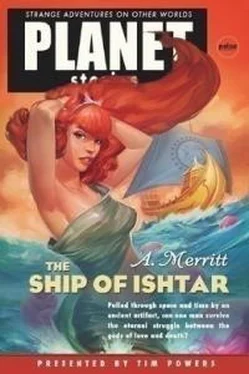
![Абрахам Меррит - Лунный бассейн [Лунная заводь]](/books/20623/abraham-merrit-lunnyj-bassejn-lunnaya-zavod-thumb.webp)
